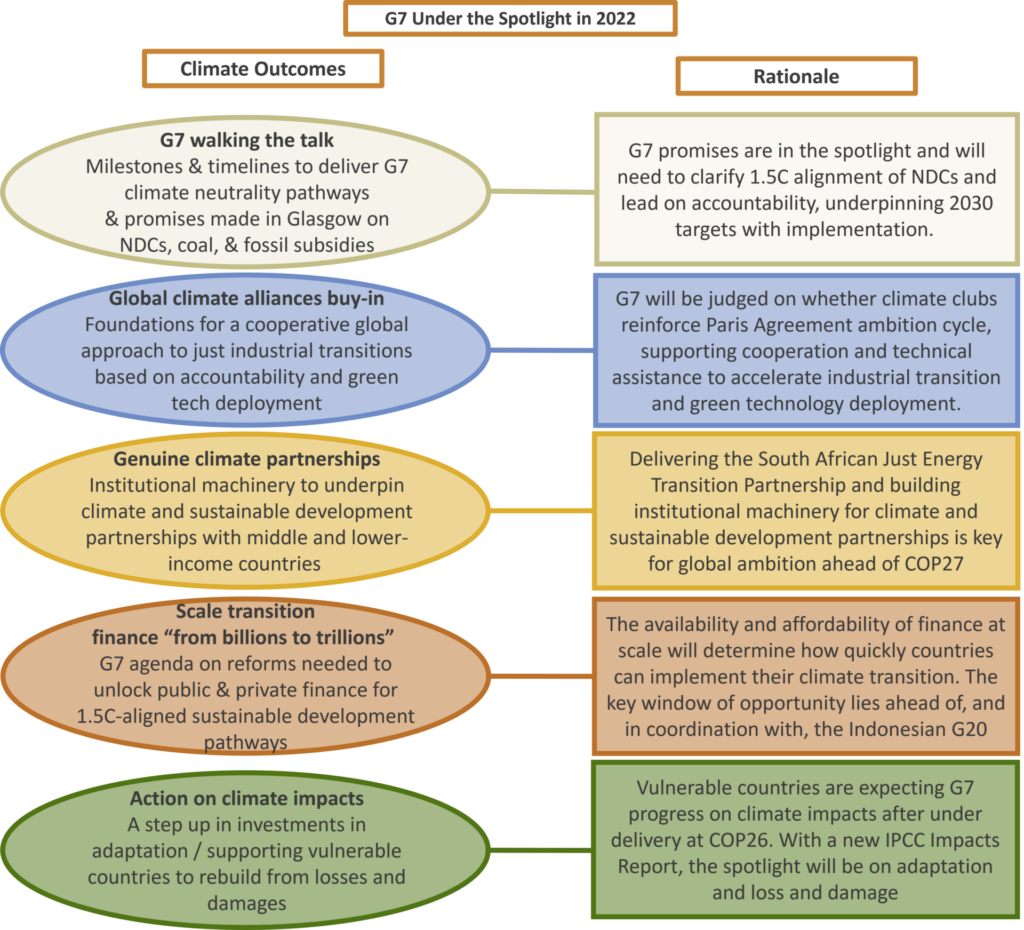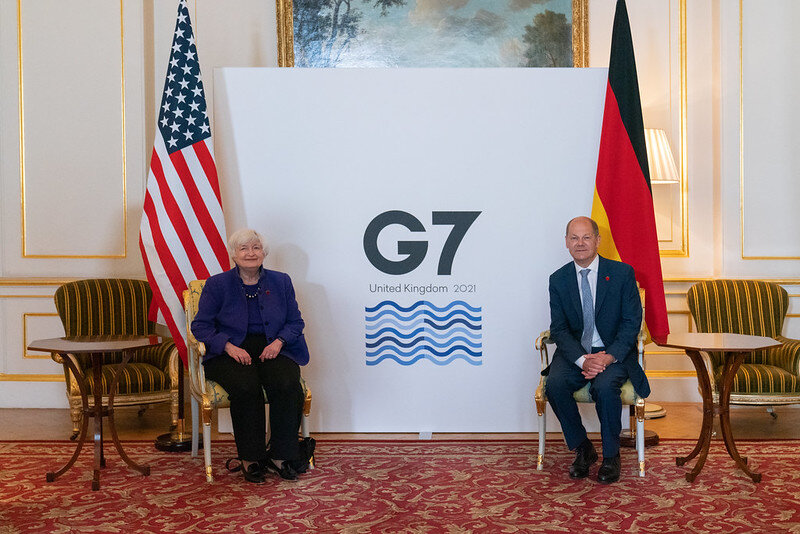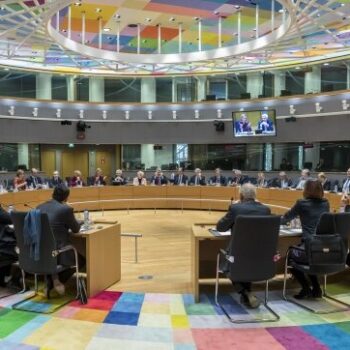The new German government has set the task for its 2022 G7 presidency as delivering “progress for an equitable world”. With five overarching areas of action, and climate action a top priority across them, the hosts have huge potential to make substantial progress this year.
But the multitude of crises the world is facing – from health, to economic, to energy security, to climate – is continuing to deepen inequality within and outside of G7 countries, and causing a declining trust in multilateralism. This creates a challenging geopolitical and geoeconomic context for the G7 to drive global action through this year. A G7 focused on vaccine solidarity, ambitious climate action, promoting social equality and access to finance for equitable and resilient clean energy transitions could navigate the array of global challenges.
High on Germany’s list of priorities is the need to develop strong alliances for a sustainable planet, including through an open and cooperative international climate club and promoting partnerships on climate, energy, and development beyond the G7. Germany also plans to focus on global economic stability and transformation, strengthening global health, and recommitting to and promoting democratic values.
These priorities, with climate action as a golden thread running through them, give this year’s G7 a good chance at delivering real progress for a more equitable, climate neutral and resilient world.
Five climate outcomes for the G7 to deliver on
In other words, the G7’s progress towards an equitable world and more sustainable planet will in large part be judged on the climate outcomes they deliver.
Countries outside the G7, particularly G20 partners, will expect the G7 to show how they’re delivering on their own climate promises, move forward on investments for the global sustainable energy transition and industrial decarbonisation, as well as support partner countries in dealing with climate impacts.
German Chancellor Olaf Scholz called for making the G7 a “pioneer for a climate neutral economy and equitable world”. There are five climate outcomes that could prove the G7 is living up to its task:

To deliver on these outcomes, the German G7 hosts will need to deploy all their G7 negotiating tracks -not only in the climate, energy, and environment track, but in the finance, development and foreign affairs tracks as well.
The G7 is the first major international test for the new German coalition government. It stands as an opportunity to build Germany’s credibility as a strong global leader. Under the G7 presidency, Germany can shape a positive international agenda, drive cooperative approaches that strengthen an international rules-based order and take concrete action to lead the world on the path to global decarbonisation, the clean energy transition and sustainable development.
Read more about the G7 delivering on climate action this year in E3G’s February newsletter, Climate diplomacy in 2022: shaping the rhythm of delivery. Subscribe to future E3G newsletters here.


